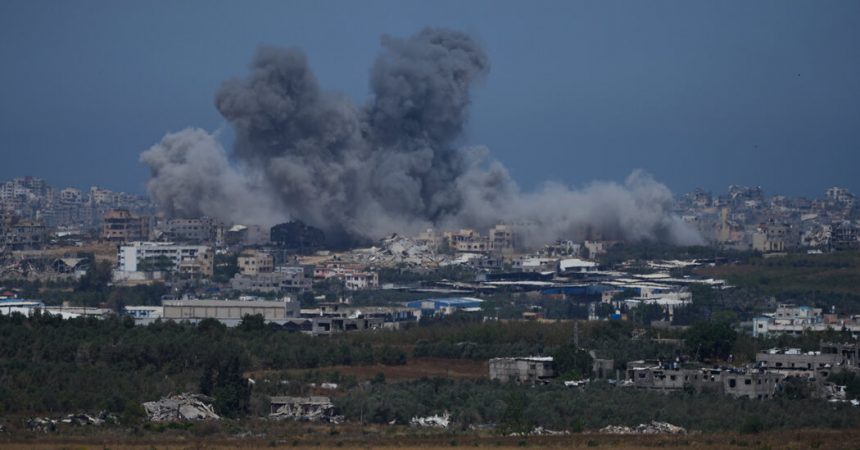Lawyers representing Israel on Friday defended the military operation in Rafah as “limited and localized,” arguing at the United Nations’ top court that the judges should not seek to restrict Israel’s actions in Gaza.
At a hearing at the International Court of Justice in The Hague, Israel responded to a South African petition for the court to order an immediate halt to its ground assault in Rafah.
Israeli forces have advanced into the outskirts of Rafah, Gaza’s southernmost city, over the past week and a half, ordering mass evacuations and intensifying their bombardment ahead of a long-anticipated invasion of the city. More than 630,000 people have fled the area, many of them already displaced from elsewhere in Gaza, according to the United Nations.
The hearings are part of South Africa’s case accusing Israel of committing genocide against Palestinians in Gaza, which it filed in December. In late January, the court ordered Israel to do more to prevent acts of genocide, but is not expected to hear the main case over whether genocide is being committed until next year.
Last week, South Africa asked the judges to issue an emergency order aiming to prevent wide-scale civilian harm in Rafah. Lawyers for South Africa argued at the court on Thursday that Israel’s Rafah operation was “the last step in the destruction of Gaza and its Palestinian people.”
The court has no means of enforcing its orders, but the South Africa case has contributed to the international pressure on Israel to rein in its campaign in Gaza. It was not clear when the court would issue a decision on South Africa’s request for an emergency order.
On Friday, Gilad Noam, the Israeli deputy attorney general for international law, repeated Israel’s fierce rejection that it was committing genocide in Gaza. He said the Israeli authorities were working to facilitate the flow of humanitarian aid and to protect civilians amid fierce combat across the enclave, including in Rafah.
“Israel is taking steps to try and contend with the massive complexity that such a situation presents,” Mr. Noam told the judges. “That is why there has not been a large-scale assault on Rafah, but rather specific limited and localized operations prefaced with evacuation efforts and support for humanitarian activities.”
Israeli leaders have said that invading Rafah is necessary to topple Hamas’s rule in Gaza. Four battalions of Hamas fighters are in the city, according to the Israeli military, as well as at least some of the over 130 living and dead hostages still held by Palestinian armed groups since the Oct. 7 attack on Israel that set off the war in Gaza.
But the prospect of a major ground invasion of Rafah amid hundreds of thousands of displaced civilians has provoked sharp criticism internationally, including from the Biden administration. After Israel began its advance into the area, President Biden said Washington would withhold some weapons if Israel launched a full-fledged assault into densely populated areas.
Mr. Noam argued that the court ran the risk of engaging in “micromanagement of operational aspects of an armed conflict.” He said that demanding a cease-fire would only tie Israel’s hands because Hamas — an armed group rather than a state — was not subject to the court’s jurisdiction.
South Africa on Thursday also asked the court to order Israel to ensure greater access for aid workers, investigators and journalists in Gaza. Mr. Noam said that Israel’s justice system was working to crack down on alleged wartime misconduct, and that military prosecutors had opened 55 criminal investigations into possible violations by Israeli forces since the beginning of the war.
Human rights groups argue the Israeli military cannot credibly investigate itself and that soldiers who kill Palestinians under contested circumstances rarely face substantial penalties. B’Tselem, a leading Israeli human rights monitor, has dismissed previous inquiries by the Israeli authorities into potential violations of the laws of war as a whitewash.
Israeli officials have accused South Africa, by filing the case, of acting as a “legal arm” of Hamas, which led the deadly Oct. 7 attack. Last week, Hamas said that a delegation of its officials had attended a conference in Johannesburg. Hamas posted a photo of Basem Naim, a group spokesman, speaking with Naledi Pandor, South Africa’s foreign minister, on social media.






